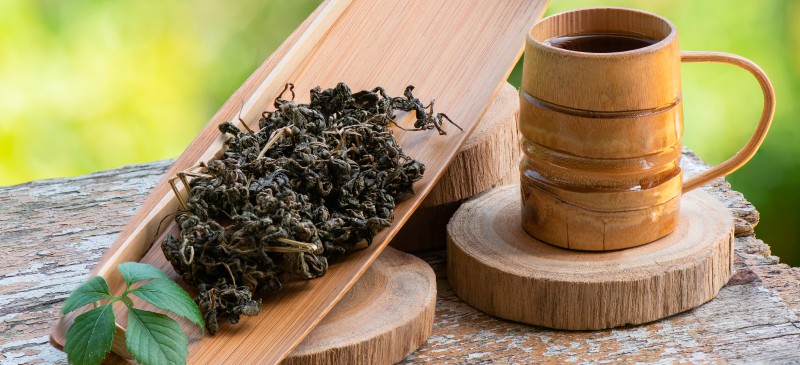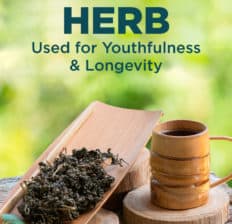This Dr. Axe content is medically reviewed or fact checked to ensure factually accurate information.
With strict editorial sourcing guidelines, we only link to academic research institutions, reputable media sites and, when research is available, medically peer-reviewed studies. Note that the numbers in parentheses (1, 2, etc.) are clickable links to these studies.
The information in our articles is NOT intended to replace a one-on-one relationship with a qualified health care professional and is not intended as medical advice.
This article is based on scientific evidence, written by experts and fact checked by our trained editorial staff. Note that the numbers in parentheses (1, 2, etc.) are clickable links to medically peer-reviewed studies.
Our team includes licensed nutritionists and dietitians, certified health education specialists, as well as certified strength and conditioning specialists, personal trainers and corrective exercise specialists. Our team aims to be not only thorough with its research, but also objective and unbiased.
The information in our articles is NOT intended to replace a one-on-one relationship with a qualified health care professional and is not intended as medical advice.
Gynostemma Benefits (+ How to Use Jiaogulan)
July 25, 2021

Gynostemma pentaphyllum, also called jiaogulan and southern ginseng, is an herb and type of tea you might come across if you’re looking for natural remedies to help lift your energy.
What is gynostemma good for? Throughout its long history of use in traditional systems of medicine originating in Asia, it’s been associated with youthfulness and longevity.
In fact, according to the Wild Tea Qi website, “The mountainous region of Guizhou, where Gynostemma is historically linked, is famous for its sheer number of citizens who have lived past the age of 100.”
Gynostemma pentaphyllum may also help promote metabolic health and cardiovascular health. It also may have the potential to help fight cancer due to how it can combat oxidative stress and inflammation — although more research is needed to show how effective it is for these purposes.
What Is Gynostemma?
The gynostemma plant is a type of vine that is native to southern China and other parts of Asia. The plant produces leaves that are used to make an anti-inflammatory tea and other herbal concoctions.
The gynostemma plant belongs to the Cucurbitaceae family, which also includes other well-known vegetables, including melon and cucumbers. Within these leaves you’ll find many protective compounds, including antioxidants like polysaccharides, plant sterols, flavonoids, ginsenosides and saponins that may help to fight oxidative stress and promote healthy aging.
It’s also rich in enzymes, vitamins and minerals.
Gynostemma/jiaogulan is also called by several other names, including “miracle grass” and makino.
What foods contain gynostemma?
Gynostemma is a type of leaf that can be eaten as food, brewed to make herbal tea or used to make extracts. The leaves are sometimes added to salads or dried and ground and used in different recipes.
Is gynostemma a green tea? The two are different species, although they have some of the same benefits and a similar taste.
When made into tea, this type of herbal tea is naturally caffeine-free, while green tea is caffeinated. It has a slightly bittersweet taste similar to black or green tea.
Jiaogulan Benefits
Here’s more about potential gynostemma benefits:
1. May Help Increase Energy
Is gynostemma a stimulant? Although it’s sometimes called southern ginseng, gynostemma is not directly related to pantax ginseng, the popular herb in Chinese medicine that is still taken today mostly for its stimulant effects.
Still, some people use gynostemma for its potential ability to fight fatigue and help improve concentration and stamina. It’s caffeine-free, however, and generally not considered to be a stimulant — although it might have the ability to increase energy due to supply of antioxidants and other health-promoting compounds.
More formal research is needed to explain exactly how it works, but it’s thought that gynostemma might releases AMP-activated protein kinase (AMPK). This helps turn up fat-burning and energy-releasing metabolic processes.
2. Has Adaptogen/Stress-Fighting Effects
Jiaogulan has traditionally been considered a naturally rejuvenating herb that acts as an adaptogen. This means that it helps the body cope with stress and maintain homeostasis or balance.
Adaptogen herbs do this by helping maintain normal levels of stress hormones, including cortisol. When released in high amounts, they can lead to a number of symptoms, like poor sleep, digestion and metabolic health.
A 2019 study published in the journal Phytomedicine found that supplementation with gynostemma “reduced ‘anxiety proneness’ in subjects under chronic psychological stress, as shown by a decrease in the score of T-STAI (State-Trait Anxiety Inventory).”
3. Supports Cardiovascular Health
It’s thought that jiaogulan benefits heart health by helping reduce inflammation as well as the negative effects of stress, such as changes in blood pressure.
It may also increase circulation and promote healthy cholesterol levels thanks to the presence of compounds called saponins. Saponins bind to reduce cholesterol. There’s some evidence that taking jiaogulan can decrease total cholesterol and increase the “good” HDL cholesterol.
4. May Reduce Respiratory Illnesses
Gynostemma herbal tea has been used in natural systems of medicine to help reduce coughing, colds, asthma and symptoms caused by other respiratory issues, such as infections like chronic bronchitis.
Available research indicates that it can help promote respiratory health by reducing inflammation of the airways and potentially decreasing allergic reactions. Studies have also found that G. pentaphyllum can promote positive immune responses through the activation of T and B cells.
5. Aids Liver Function
Certain studies suggest that gynostemma benefits include supporting detoxification, healthy liver function and protecting against nonalcoholic fatty liver disease.
One small, randomized clinical trial found that adults who received 80 mL of gynostemma extract while following a prescribed diet for four months experienced a reduction in body mass index and fatty liver scores, as well as scores related to insulin resistance. Based on the results, researchers concluded that gynostemma extract “is an effective adjunct treatment to diet therapy for patients with nonalcoholic fatty liver disease.”
6. May Have Cancer-Fighting Effects
There’s some evidence indicating that gynostemma’s antioxidants, including polysaccharides, can help inhibit cancer cell migration and invasion.
Observations from studies suggest that gynostemma has antioxidant and anti-inflammatory effects that can help induce apoptosis and repair DNA. This is linked to protection against some types of cancer, including colon cancer.
For example, according to a 2016 study published in Chinese Medicine, “Multiple mechanisms of action have been proposed regarding the anti-cancer activities of GpM, including cell cycle arrest, apoptosis, inhibition of invasion and metastasis, inhibition of glycolysis and immunomodulating activities.”
7. Seems to Have Anti-Diabetic Effects
Some research has demonstrated that compounds called gypenosides found within gynostemma have anti-diabetic effects due to how they can help balance blood sugar levels and fight insulin resistance. There’s still more to learn about how it works to promote insulin sensitivity, and at this time doctors recommend using it alongside standard anti-diabetic therapy as an adjunct treatment.
If you’re looking for further support for metabolic health with help from other herbs, consider trying gymnema sylvestre, an herb with a long history of use in Ayurvedic medicine, including helping with blood sugar balance.
How to Use (Dosage)
How much jiaogulan should you take? While there isn’t a standard dosage that experts recommend, a general recommendation for adults is to consume between two and four cups of brewed gynostemma tea per day.
In two of the studies mentioned above, the dosages that were used to help promote metabolic health were around six grams of leaves per day (measured by dry weight).
To make jiaogulan tea, sleep the leaves in hot water for at least 10 minutes. According to the Indigo Herbs website, if you’re using dried gynostemma powder, add 1/2 to 3/4 teaspoon of powder per cup of hot water, let it infuse for 15 minutes and then drink up to three times per day (or as directed by your herbal practitioner).
If taking it in extract or pill form, read dosage directions for the specific product you’re using, since concentrations of jiaogulan vary from product to product. Also take note of other compounds and ingredients that may be combined with gynostemma for metabolic or heart health-promoting effects, such as berberine (a Chinese herb known for lowering blood sugar), quercetin (a flavonoid antioxidant) or vitamin C.
Some studies have found that for promoting heart and metabolic health, a daily dosage of about 10 milligrams of extract taken three times daily may be most effective and safe.
Risks and Side Effects
Is jiaogulan safe? Most studies have found there to be few jiaogulan side effects when it’s consumed in recommended amounts for several months. It seems safest to use it for up to four months before taking a break or consulting a doctor.
Some people have reported mild gynostemma side effects, including nausea and diarrhea. If you experience digestive issues when beginning to use this supplement, consider taking less or taking a break before beginning to use it again.
Gynostemma may not be safe for pregnant women or those with autoimmune diseases due to how it can impact the immune system. It should also be avoided by people with bleeding disorders and anyone taking medications to control blood clotting or that decrease the immune system.
Conclusion
- Gynostemma pentaphyllum is a type of leaf grown on a vine that’s native to Asia. It’s used to make herbal tea, extracts and supplements that seem to have a variety of beneficial effects.
- What is jiaogulan used for? Gynostemma benefits include supplying antioxidants and enzymes that can help counteract oxidative stress and promote heart, metabolic and respiratory health. It might also act like an adaptogen to increase energy and fight fatigue.
- Is jiaogulan a stimulant? It’s caffeine-free and unlikely to cause side effects that are associated with stimulant consumption. It can be consumed as an herbal tea, pill or extract and is generally safe — however it might cause digestive issues in some people.






